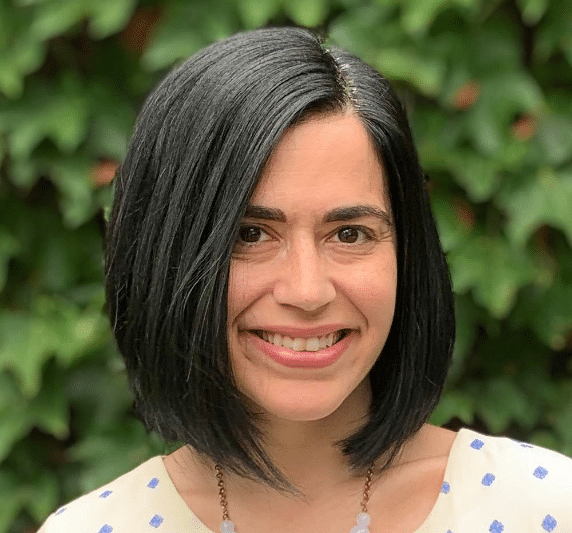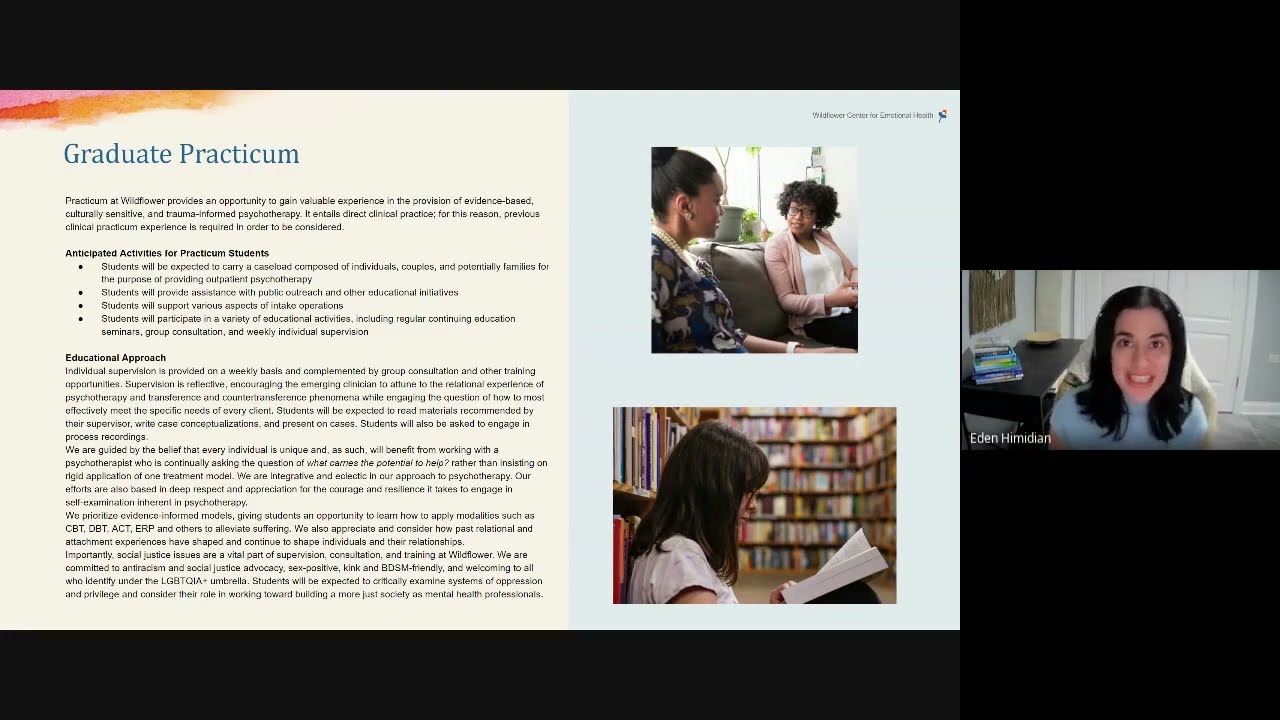Graduate Practicum Opportunities at Wildflower
Wildflower Center for Emotional Health, with offices located in Chicago (River North), Oak Park and Boulder, is a distinguished psychotherapy practice that is deeply passionate about developing the next wave of mental health professionals. With a foundation rooted in evidence-backed modalities and theoretical approaches, our practice emphasizes continuous learning and clinical collaboration to deliver empathic and attuned care.
What Awaits You at Wildflower Practicum?
We offer our therapeutic services both in the comfort of the Wildflower offices and through virtual platforms, catering to individuals, couples, and families. With a proud association as a practicum site for esteemed institutions like The University of Chicago Crown Family School of Social Work, Policy, and Practice, and Loyola University Chicago’s School of Social Work, our focus areas include perinatal and reproductive mental health, mood and anxiety, trauma, sexuality, and relationships.

Core Activities & Responsibilities

Hands-on Experience
Handle a diverse psychotherapy caseload involving individuals, couples, and families.

Community Engagement
Offer your assistance in community outreach and spearhead other educational initiatives that make a difference in Chicago and surrounding areas in Illinois.

Intake Operations Support
Dive deep into the operational side of psychotherapy at Wildflower and be a pivotal part of intake procedures for new clients.

Educational Enrichment
Benefit from a range of educational activities, encompassing regular continuing education seminars, group consultations, and intensive individual supervision sessions.
A Word from a Previous Intern
“I am so thankful for my time at Wildflower as an intern. The opportunities for supervision, the chance to work directly with clients, and the emphasis on my own well-being made my experience here invaluable. Wildflower embodies its core values in its work with both clients and clinicians. I highly recommend it!”
Jessica Erikson, Advanced Clinical Intern 2021-2022
Our Educational Philosophy
Individual supervision is provided on a weekly basis and complemented by group consultation and other training opportunities. Supervision is reflective, encouraging the emerging clinician to attune to the relational experience of psychotherapy and transference and countertransference phenomena while engaging the question of how to most effectively meet the specific needs of every client. Students will be expected to read materials recommended by their supervisor, write case conceptualizations, and present on cases. Students will also be asked to engage in process recordings.
We are guided by the belief that every individual is unique and, as such, will benefit from working with a psychotherapist who is continually asking the question of what carries the potential to help? rather than insisting on the rigid application of any one treatment model. We are integrative and eclectic in our approach to psychotherapy. Our efforts are also based on deep respect and appreciation for the courage and resilience it takes to engage in self-examination inherent in psychotherapy.
We prioritize evidence-informed models, giving students an opportunity to learn how to apply modalities such as CBT, DBT, ACT, ERP, and others to alleviate suffering. We also appreciate and consider how past relational and attachment experiences have shaped and continue to shape individuals and their relationships.
Importantly, social justice issues are a vital part of supervision, consultation, and training at Wildflower. We are committed to antiracism and social justice advocacy, are sex-positive, kink, and BDSM-friendly, and welcoming to all who identify under the LGBTQIA+ umbrella. Students will be expected to critically examine systems of oppression and privilege and consider their role in working toward building a more just society as mental health professionals.

Meet Our Director of Education & Professional Development
Eden Himidian, LCSW, PMH-C, RYT serves as the Director of Education and Professional Development at Wildflower. She blends her expertise as a psychotherapist with her training in Trauma Sensitive Yoga Therapy and Yoga Informed Psychotherapy. Eden is certified in perinatal mental health and is passionate about treating perinatal and reproductive mental and emotional concerns.
Eden prioritizes a holistic approach, incorporating evidence-based practices to enhance the mind-body connection. Her academic journey took her through Knox College and the University of Chicago’s School of Social Service Administration.
With previous experience as a Clinical Director for mood, anxiety, and trauma-related disorders, Eden also contributes significantly to Wildflower’s educational endeavors. As a leader in training and development, she strives to create an environment that fosters safety, diversity, and growth for clinical staff, students, and the broader community in a professional context.


